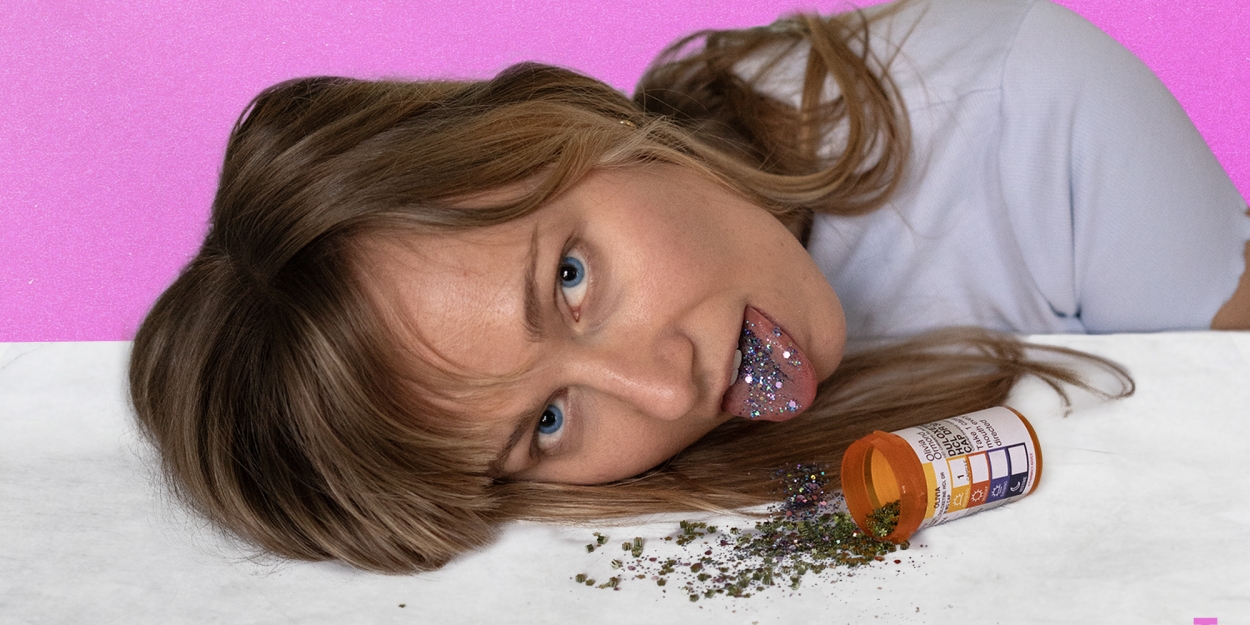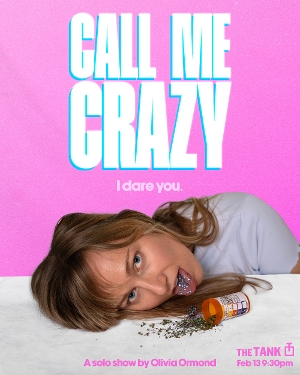Interview: Olivia Ormond Dishes on the Vulnerability Behind CALL ME CRAZY at The Tank
The one woman show about the fight for a diagnosis debuts on February 13th


For years, Olivia Ormund dealt with chronic pain and vague symptoms and struggled to find anyone in the healthcare industry who would believe that she was really sick. Now she's telling her story and shining a light on invisible illnesses. This one woman show debuts on February 13th at 9:30 pm at the Tank in Manhattan.
RK: Could you tell me a bit about your show?
OO: The show is about a world that’s constantly fighting against you. It's through the eyes of going through the medical system as a woman with chronic pain and mysterious symptoms doctors can’t diagnose. And in my case during my 20's, what's supposed to be ‘the best time of your life’, I’ve spent mostly in doctors waiting rooms. It’s not an uncommon story for women’s pain not to be taken seriously. Fighting to be heard or treated at all is extremely common. I’ve been dealing with it for six years. It has greatly impacted my life. What has also impacted me is not being believed. For something not to have a diagnosis, people don’t know what to do with you.
Being passed off or ignored by people that are supposed to help you makes it hard to even see yourself as a person sometimes. How are you supposed to know who you are if people don’t see you? In the decade where people my age are defining who they are or making a name for themselves, I’m now living this double life of patient and person.
RK: You've done a lot of writing, directing and producing, but this is your theatrical debut. How are you feeling about stepping out into the limelight?
OO: I’m nervous but excited to get this story out there. It’s very important and seems more timely than ever in terms of advocating for women’s healthcare.
I knew when I started writing this as a play that I was going to be the one to perform it. It is in every way ‘me’. In every project I’m involved with I follow the ethos ‘if it services the story’. For this one, being the person to deliver it was imperative to bringing it to life. It’s such a physical story revolving around the body and pain, I live with it and knew it was important for that to be portrayed. And I love trying new things and stepping out of my comfort zone. It makes art fun! But the swiftness of its actualization took me by surprise!
RK: What inspired you to put this show on now?
OO: I wrote the show last spring at the same time I was having one of my worst health periods. Then I didn’t look at it all summer. It felt good that it was out of me but was still just mine in a folder on my laptop.
During the summer I was connected with a new doctor that felt like he was fighting for me. I can’t say enough about the act of being heard and seen and how imperative it is. I was focused on getting healthy. Being able to exhale even slightly allowed room for me to bring the show out from its folder.
It's also such a big part of my life that after it was written I couldn’t see myself giving 100% into another script until this one saw the light of day.
RK: What was the process of writing this show like for you?
OO: It is the most vulnerable and intimate piece I’ve written, being in the first person. There are no smoke screens or veils; it's all out there. Writing it is the easy part. I love writing. I love this script. On the page it’s everything I want it to be.
Writing this was very similar to all my writing. The idea comes and then sits in my head for a long time, years maybe, and then one day it decides it's ready. I wrote it in a few days and edited it for a week or two after. Then I put it away and didn’t touch it for a while.
RK: What do you hope people take away from the show?
OO: My hope is that people who have been pushed aside feel seen. Specifically, women. I've heard it time and time again, every woman has been treated this way. I started posting TikToks about my experience and have received hundreds of messages from other women who have had a similar experience. The experience is so isolating but none of us are alone in it. Beyond people not feeling alone, I hope it starts a conversation around the way we approach women's healthcare and how it has to change.
Tickets to Call Me Crazy are available here.
Comments
Videos

